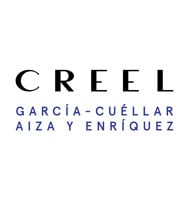

General counsel | Grupo GP



Hector Izzo
General counsel | Grupo GP
Could you share an example of a time when you came up with an innovation that improved how your legal team works and did not come at a large expense?
Some challenges in the legal profession present opportunities for growth and development, while others require adaptations to the way in-house legal teams approach certain practice areas. Personally, I focus on structuring processes, such as automation, to streamline workflows. This involves separating repetitive tasks or those that do not require specialised legal knowledge and skills from those that require full legal training and experience. By automating certain aspects and providing standardised, easy-to-complete contract forms, we can ensure document control and simplify service for internal customers. This approach leads to greater efficiency and time management, allowing in-house counsel to devote their attention to critical, forward-thinking tasks. By delegating repetitive tasks that do not require legal expertise, the legal team gains more time to improve their advisory role.
Can you foresee any key developments to the way general counsel work over the next five years?
Envisioning, energising, and evolving serve as fundamental pillars to achieving results and establishing a practical and effective framework within in-house legal teams. It is imperative that in-house teams optimise performance, reach their full potential, and meet the expectations set for them. I encourage in-house legal teams to envision their desired future state, driving their actions and cultivating productive habits. By leveraging past experiences, they can continually improve and maintain momentum toward company goals, with a better outcome under the circumstances.
What measures has your company taken to embed sustainability practices into its core business operations, and how does the role of the general counsel contribute to driving and ensuring sustainable practices within the company?
As general counsel, I sit at the intersection of legal, compliance, reputation and company risk. As companies increase their commitment to sustainability and responsible business, so does the involvement of the legal team. In-house legal teams have always played a vital role in managing ESG for organisations. However, legal teams are no longer just reacting to ESG issues, but are proactively engaging in the integration of material ESG risks and opportunities into businesses, their operational policies, and marketing strategies.
In-house legal teams are increasingly involved in setting the strategic direction of sustainability and ESG within organisations and ensuring sustainability is integrated into corporate governance and broader business operations. A key component has been integrating ESG criteria into investment decision-making and ensuring that appropriate ESG due diligence strategies are in place for any transaction, including upstream and downstream value chains. By establishing sustainability commitments and targets with strict timelines, legal teams will need to engage in the comprehensive review of these commitments before they are launched and ensure they withstand external scrutiny.
How would you assess the impact of new technologies on the legal landscape in Mexico, and what measures would you propose to leverage these technologies while ensuring compliance with relevant laws and regulations?
Emerging technologies such as artificial intelligence (AI), cloud computing and blockchain are rapidly transforming various industries, including legal. These technologies are reshaping the way legal professionals operate, interact, and provide legal services to clients as they evolve and become more sophisticated.
Mexico is known for its extensive network of international trade agreements. How would you navigate the complex legal requirements associated with cross-border transactions, considering the changing trade dynamics and regulations in Mexico?
Cross-border transactions are more common than ever in the current globalised business environment. Conducting cross-border transactions requires in-house counsel to have a deep and comprehensive understanding of the legal, regulatory and compliance frameworks that apply to all these transactions. Therefore, the first thing to keep in mind when a cross-border transaction appears is to understand the legal framework that governs transnational corporate operations. However, among them is the need to understand cultural variations, economic trends, political stability, currency risks, tax laws and intellectual property rights. A thorough examination and analysis of these aspects is essential for the success of cross-border transactions. Failure to carefully evaluate critical criteria, perform due diligence, structure transactions effectively, ensure compliance, and establish dispute resolution procedures could lead to disaster for companies.
Group general counsel | Grupo GP
General counsel | Grupo GP
General counsel | Grupo GP